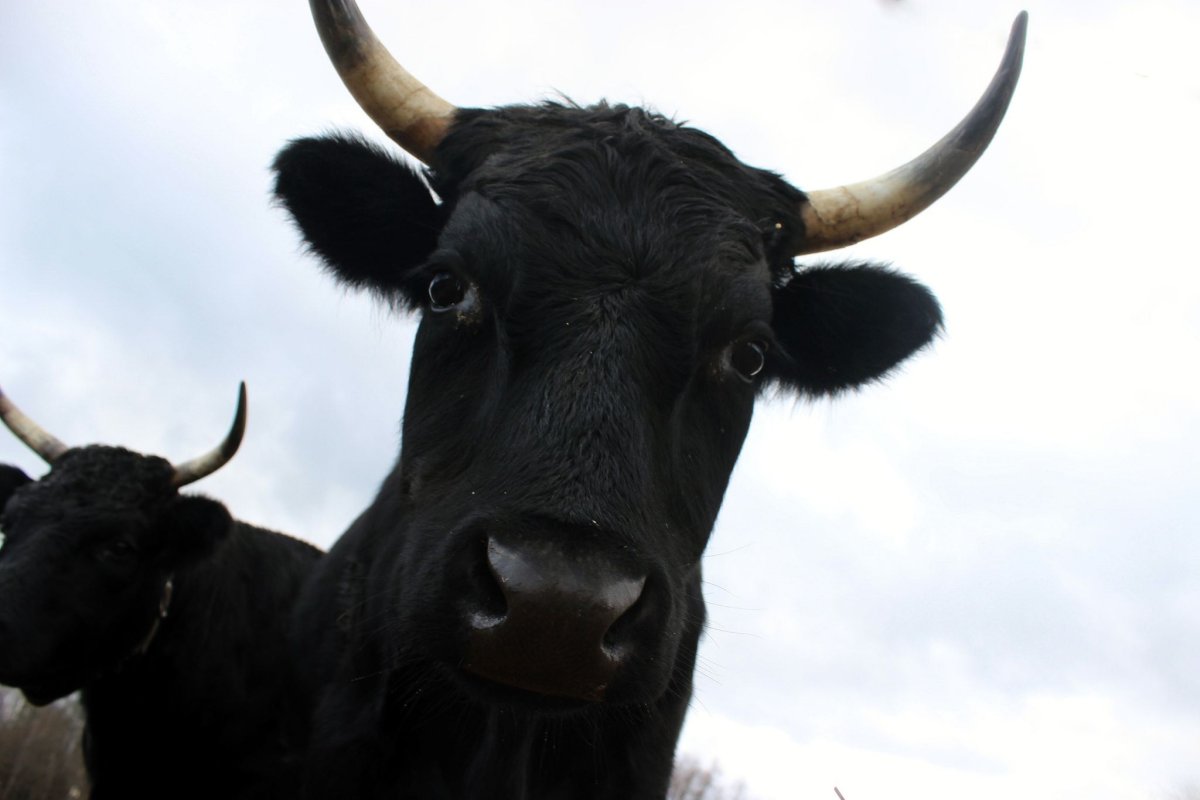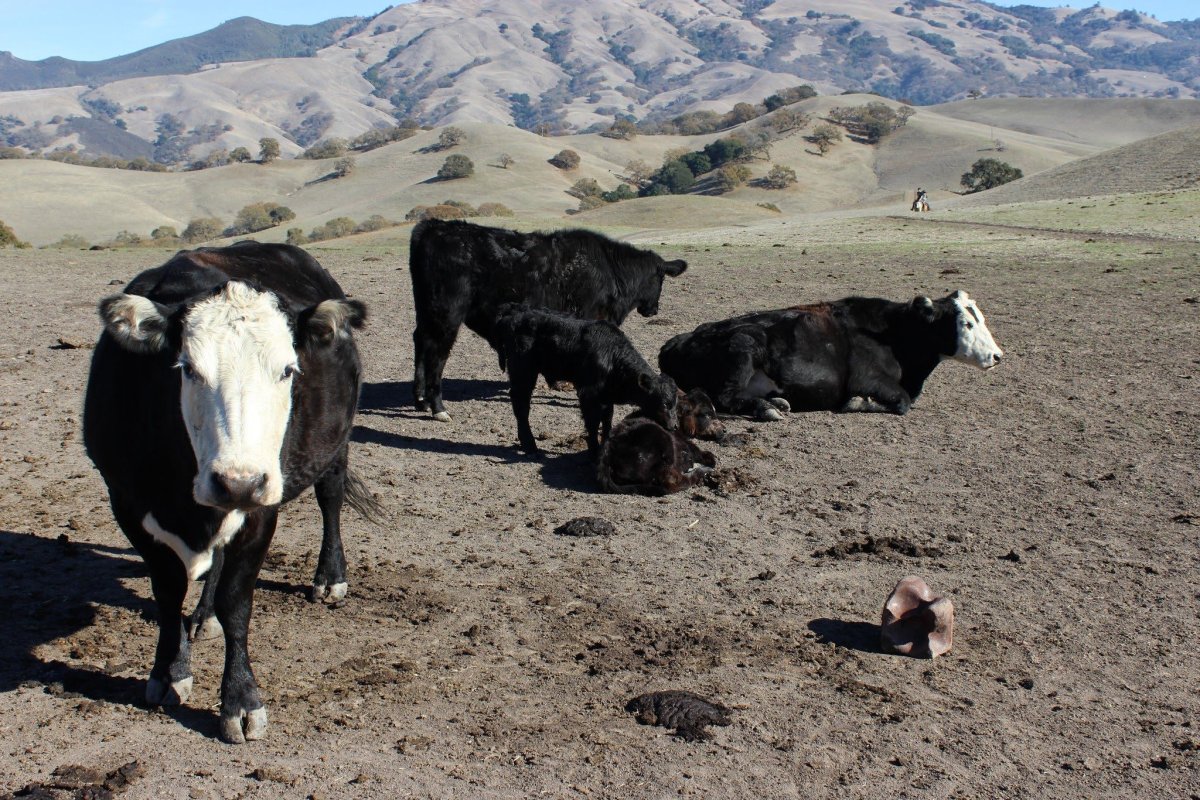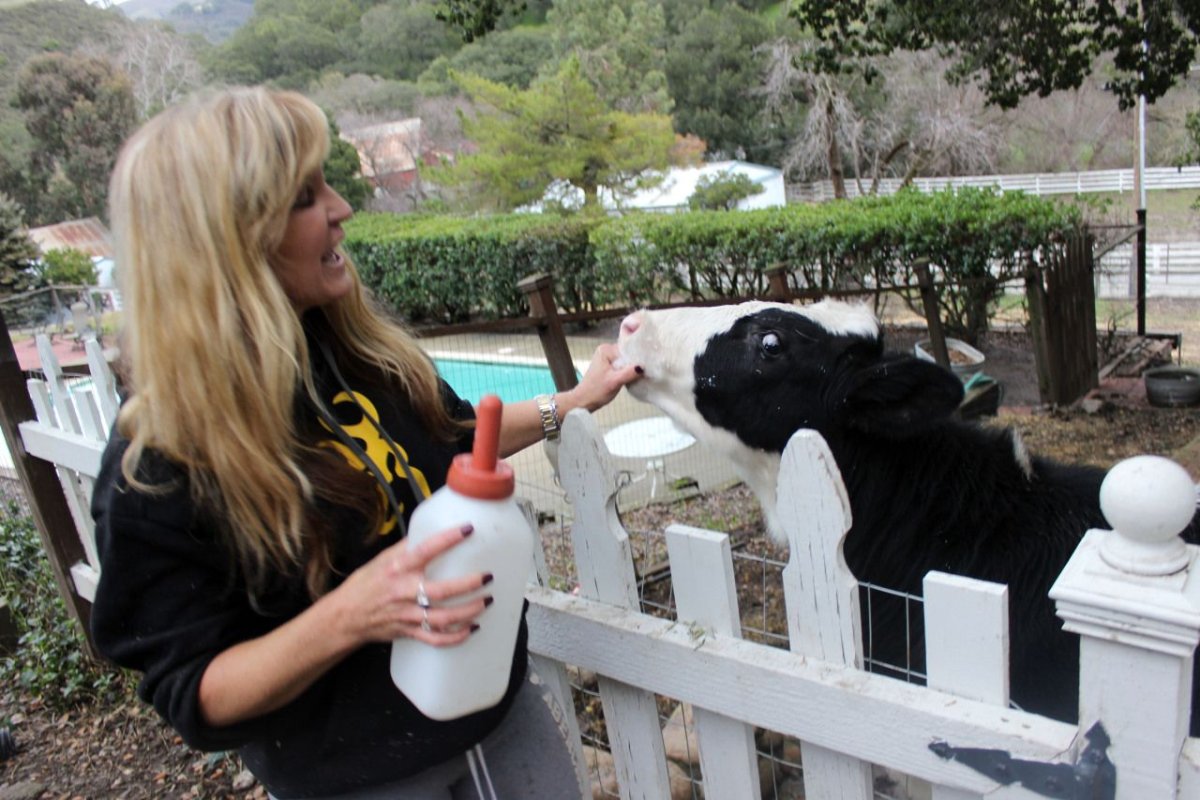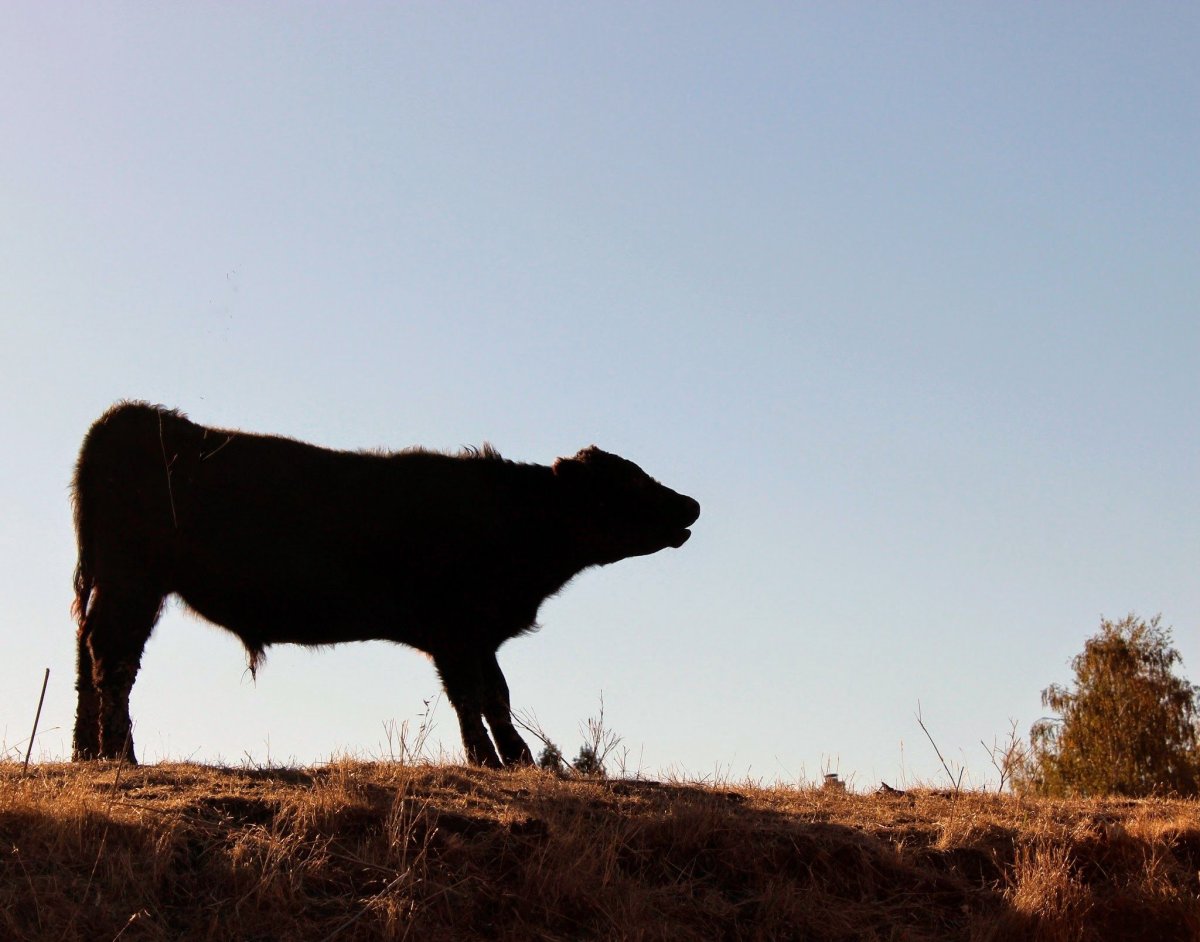
There are brains in the barnyard, according to a literature review published this week about cattle intelligence. The paper summarized a selection of peer-reviewed research that demonstrated bovine cognition, and determined that the animals can have "Eureka" moments, can be optimistic or pessimistic, are affected by painful experiences, protect their calves, and can recognize their friends.
The peer-reviewed paper, called The Psychology of Cows, was published in the journal Animal Behavior and Cognition and was funded by the animal-welfare-education endeavor The Someone Project. The Someone Project describes itself as "Farm Sanctuary's latest effort to introduce people to who farm animals are."

The goal of publishing the paper was to improve the general understanding of cow intelligence.
"We wanted to dig into the objective scientific literature [on cattle] and say, 'What do we know, who are they?' and then put that back out to the public domain," said Lori Marino. Marino is a neuroscientist and former faculty member in Neuroscience and Behavioral Biology at Emory University, and is also one of the authors of the paper.

Marino and Florida State University PhD student Kristin Allen cited more than 200 papers from 22 major journals and summarized indications of cow psychology, personalities, and intelligence. For example, dairy calves run around and play less after they have endured the procedures of disbudding, or having the buds of horns cut out of their head with a hot iron and without anesthesia, according to the journal Applied Animal Behaviour Science. The review paper considers the less active, dehorned cattle are pessimistic, whereas the more playful animals are optimistic.
Cattle also can discriminate between people who handle them roughly and who are gentle with them, preferring to stand closer to those who had been gentle with them before. (However, the study indicated that their actions are also partially influenced by the color of the overalls that people are wearing, if they are the color that the gentle or rough person was wearing as well.) When a mother cow sees an unfamiliar vehicle approach, she will also put her body between the vehicle and her calf, presumably to protect it.
Marino also says that cattle can experience "Eureka" moments. In research published in Applied Animal Behaviour Science, researchers observed cattle who were given a reward after completing a task, and gave the same reward to other cattle who had no control over their rewards. By measuring heart rate, they determined that the cattle who could control their own fate got more excited than the ones who were rewarded passively. This could be interpreted as cattle having an emotional reaction to finishing a puzzle, not just getting food.
It's notable that, while the literature review cites peer-reviewed research, the paper itself could be influenced by a desire to improve the welfare of farm animals. The Someone Project, which funded the paper, is a joint endeadvor between Farm Sanctuary, a farm animal protection organization that runs three shelters for farm animals like cattle, and the Kimmela Center for Animal Advocacy.
Furthermore, in the same issue of Animal Behavior and Cognition, several other authors published their commentaries on the paper, with positive and negative takes. One called it " a case of over-interpretation and personification," stating that the authors anthropomorphize the animals, or compared them to humans when they shouldn't have.

Another commentary, however, called, Evidence for Cows' Minds and Hearts: Why Cows Are Far More than Biological Machines, voiced support for the review paper. None of the commentaries suggested that cattle were simply unintelligent, though.
Heather Hill, an associate professor of psychology at St. Mary's University and an editor of the International Journal of Comparative Psychology, "was very unhappy" when she reviewed the paper. "It's nice to have this sort of information gathered together, but what was very frustrating was their choice of information that they included, and how they chose to present it," Hill said. "It was not in my opinion the best representation or the most objective representation." Furthermore, she noted that any research about things that cattle can't do isn't likely to get published at all.
Allen and Marino responded to the commentaries in the same issue of Animal Behavior and Cognition, saying that "a false pretense of scientific objectivity does a disservice to the cow literature." They agreed that some concerns were valid, but disagreed on others.

All of the papers mentioned the importance of studying bovine cognition and intelligence, though. Allen and Marino noted that there is much more research done on animals that are not commonly food animals, such as dogs, primates, and dolphins. The animals that we breed, raise, take care of , and eat by the millions should be understood as well. Hill said that it would be nice to have a literature review of cow cognition that was from independent researchers, without a preference for or against animal welfare.
"It's important for people to understand who [cattle] are and then go on to make a choice about how they want to treat them based upon real evidence," Marino said. "Not based on impressions, assumptions, biases one way or the other, but to get out there, read the objective scientific data on who these animals are put it in a form that's interesting and then leaving it up to the public to decide if this information changes how they view and treat these animals either way."
Uncommon Knowledge
Newsweek is committed to challenging conventional wisdom and finding connections in the search for common ground.
Newsweek is committed to challenging conventional wisdom and finding connections in the search for common ground.
About the writer
Kristin is a science journalist in New York who has lived in DC, Boston, LA, and the SF Bay Area. ... Read more
To read how Newsweek uses AI as a newsroom tool, Click here.








